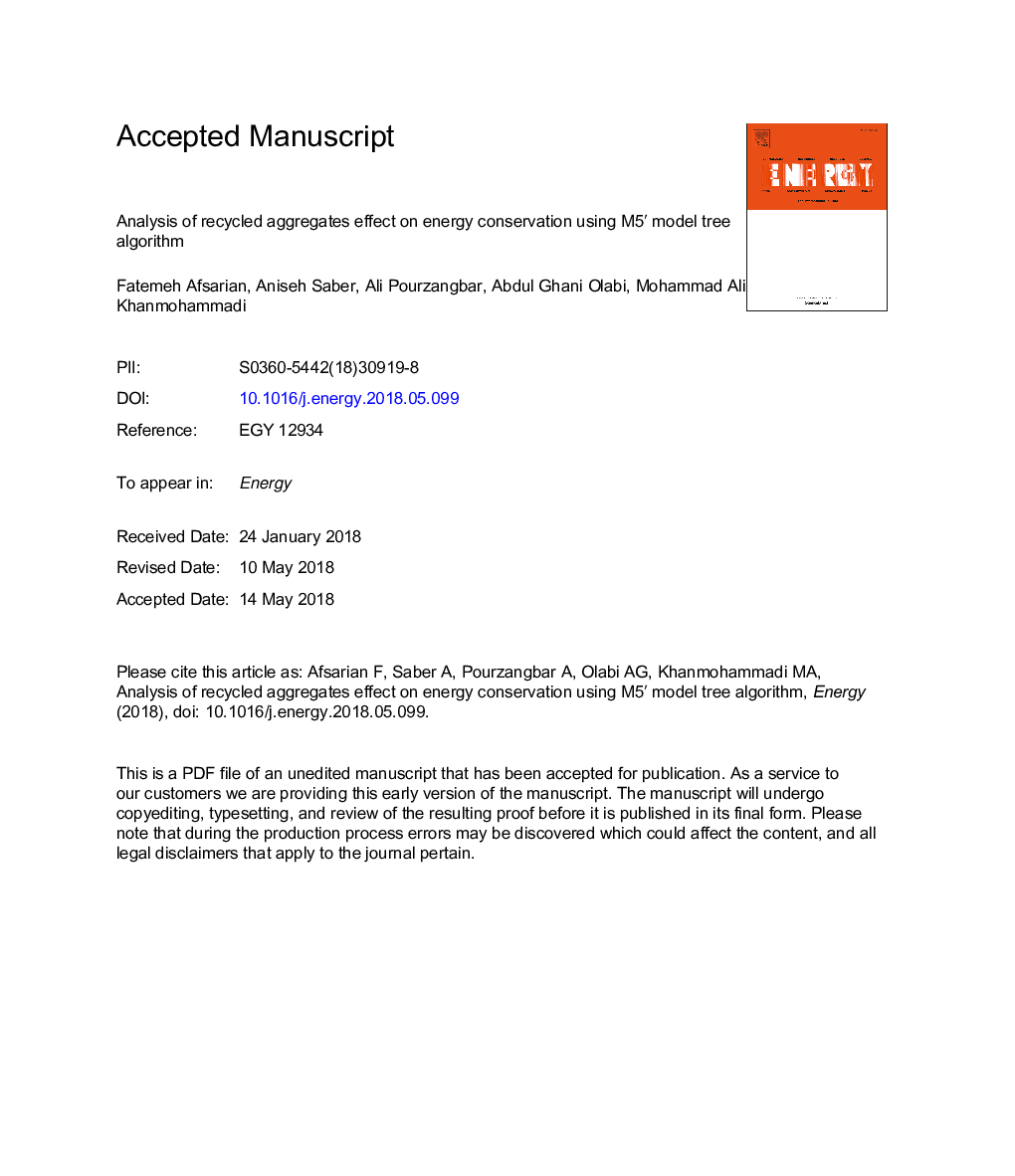| Article ID | Journal | Published Year | Pages | File Type |
|---|---|---|---|---|
| 8071343 | Energy | 2018 | 41 Pages |
Abstract
Sustainability targets can be achieved by pursuing environmental-friendly and energy-efficient design and construction. Being sub-standard in terms of stability, buildings would pose serious threats to the environment and natural sources. Therefore, having sustainable design and construction is of great importance in building industry. To achieve sustainability targets, recently recycled aggregates attracted special attention. While several studies have been conducted on the thermal and hydrometric characteristics of recycled materials, there are few studies available on the evaluation of the applicability of these materials in buildings. Accordingly, in this study, the performance of four different recycled concrete panels, produced using waste and recycled materials, has been investigated in terms of energy consumption in a residential building using Design-Builder software. Moreover, a model tree algorithm (M5â²) has been used to evolve formulas for predicting the total energy consumption in the reference building. To do this, up to 1200 simulations using various recycled materials and glass areas have been carried out in Design-Builder software. The performances of the developed formulas have been evaluated on the basis of statistical measures. The results suggest that M5â² could serve as a valuable tool for the estimation of total energy consumption in residential buildings.
Related Topics
Physical Sciences and Engineering
Energy
Energy (General)
Authors
Fatemeh Afsarian, Aniseh Saber, Ali Pourzangbar, Abdul Ghani Olabi, Mohammad Ali Khanmohammadi,
